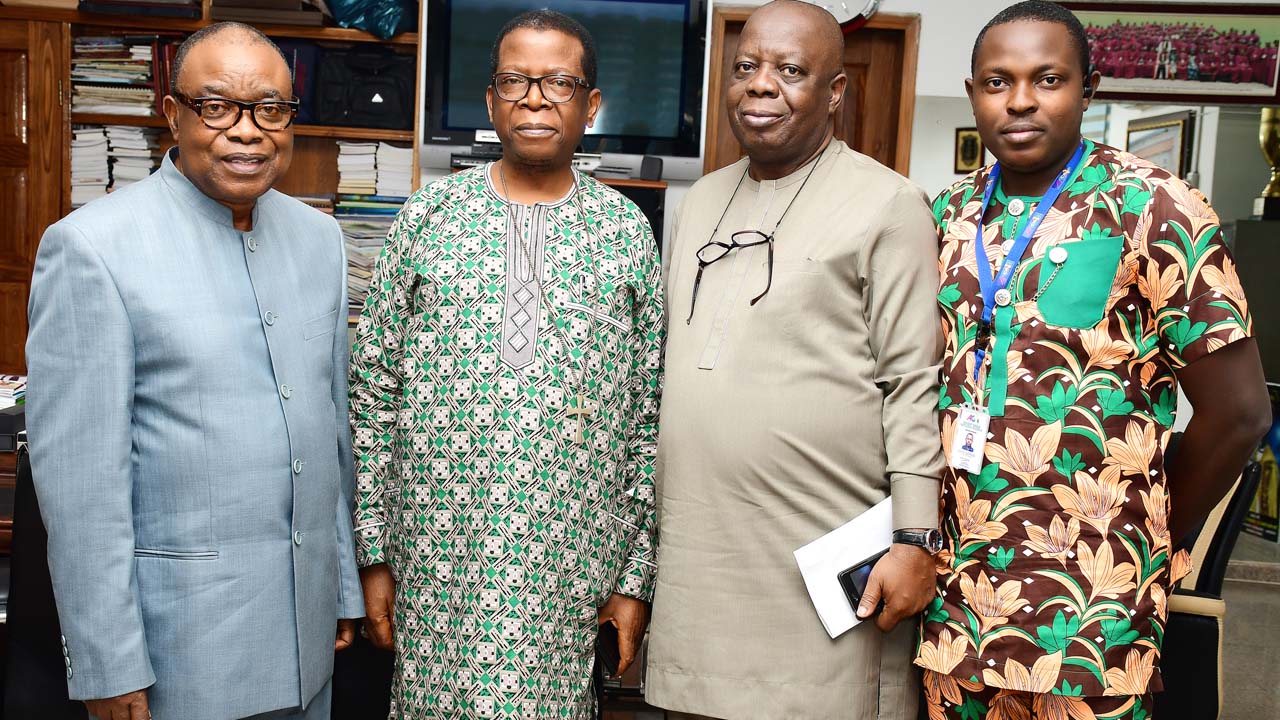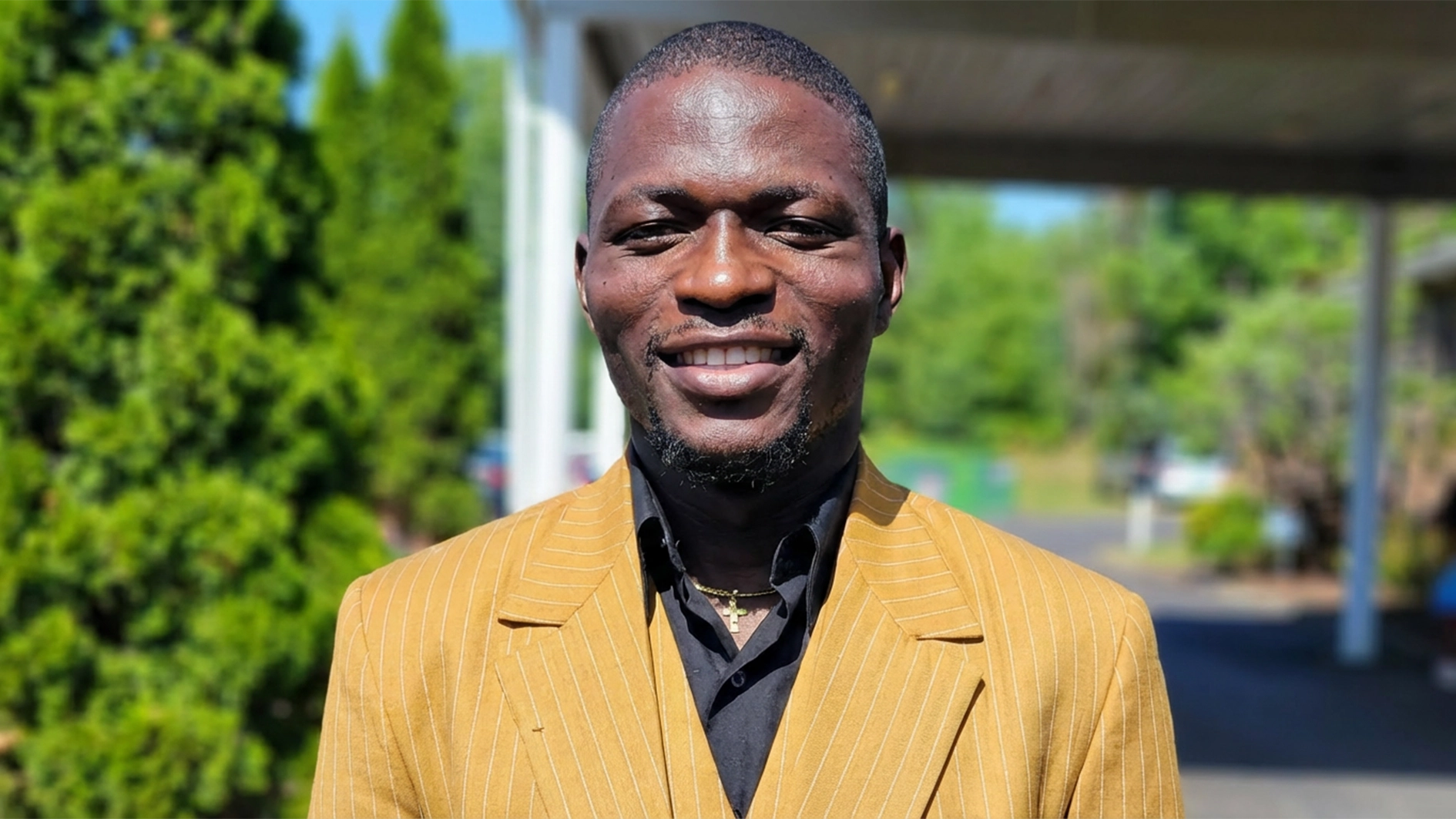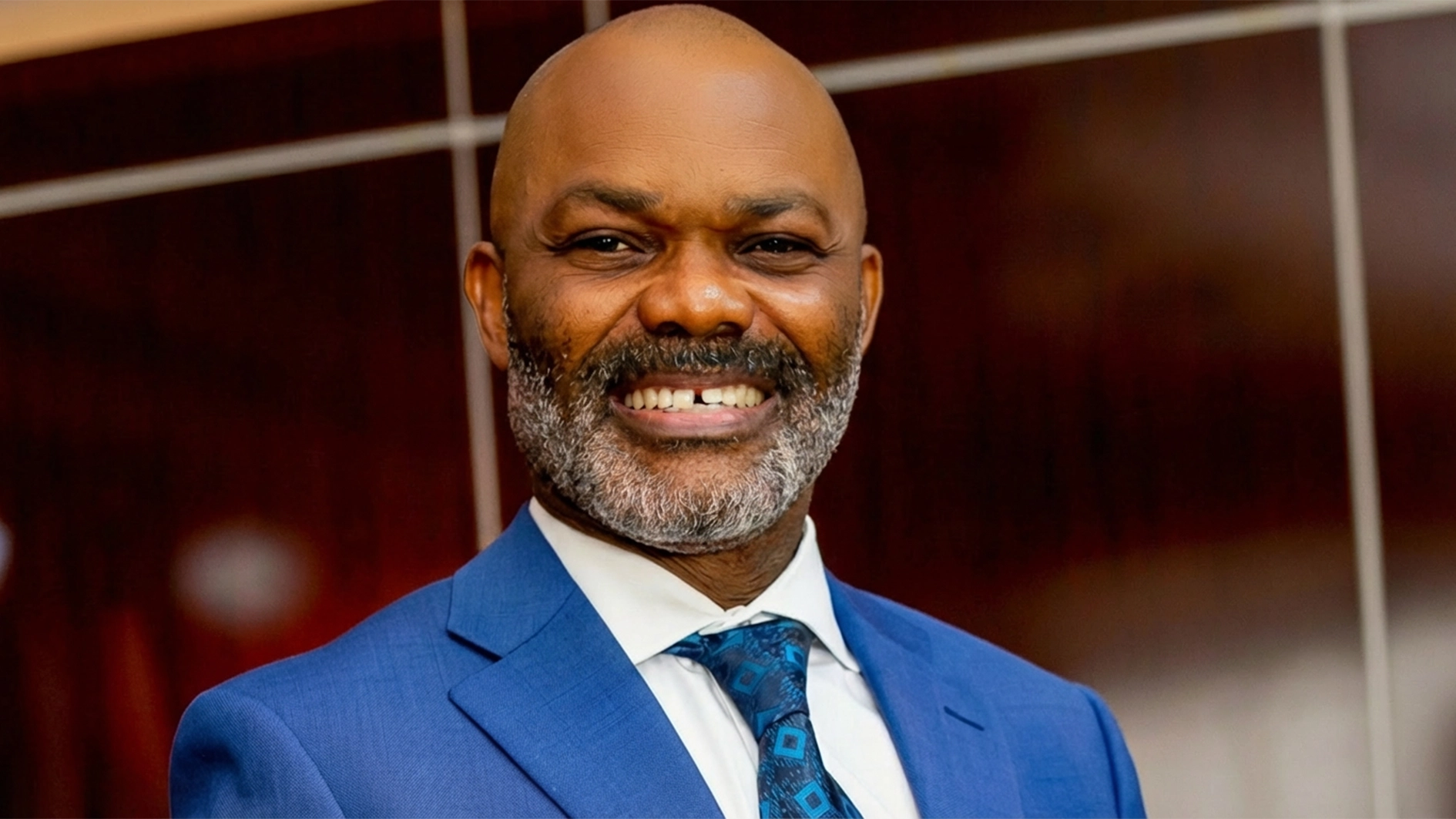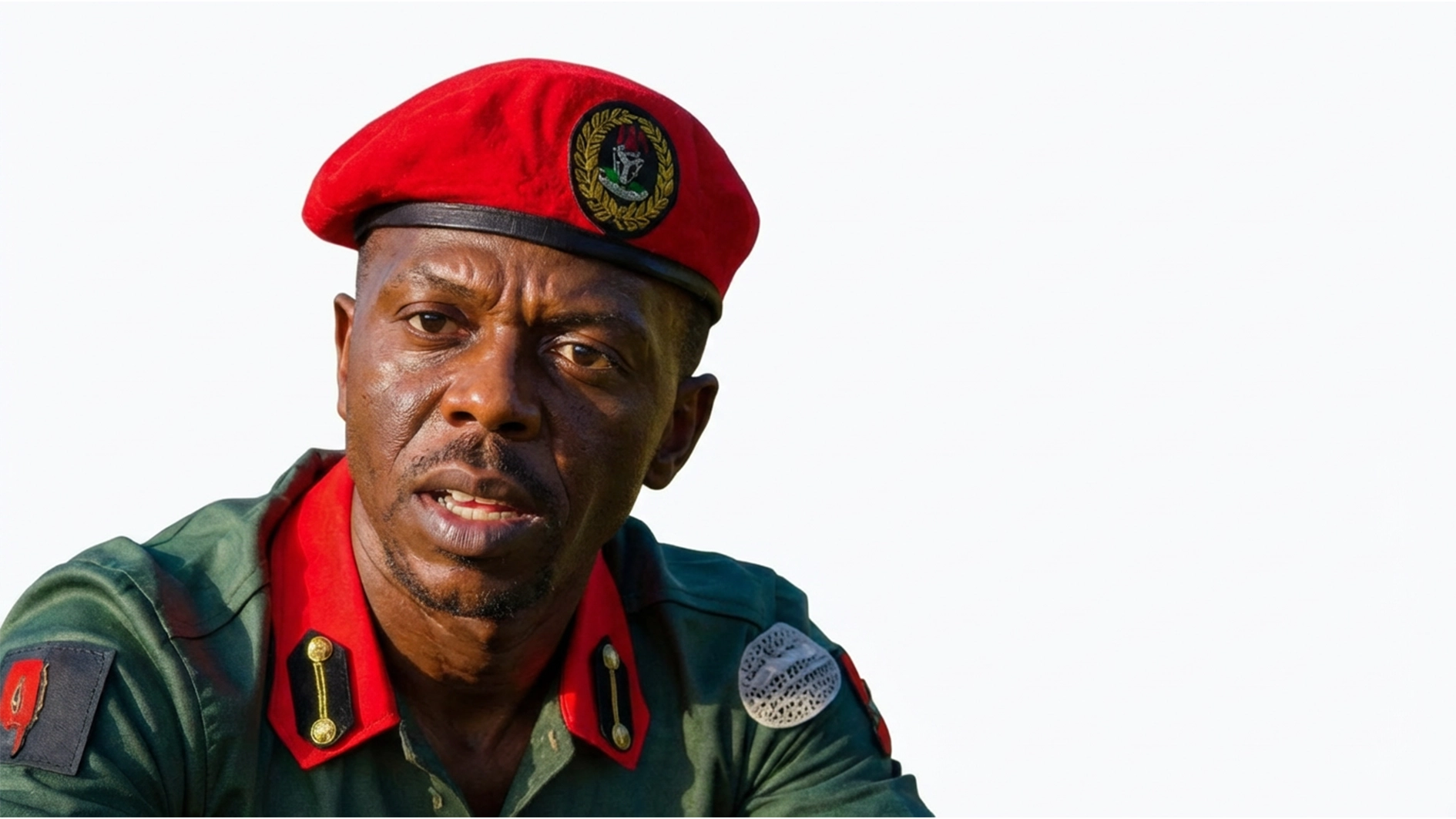In the next few days, the Archbishop of Abuja Province and Primate of the Church of Nigeria (Anglican Communion) His Grace, Most Revd. Nicholas Dikeriehi Orogodo Okoh will disengage from the office of the primate after completing the statutory 10-year term as Primate of the Church of Nigeria and Metropolitan Archbishop of Abuja. His Grace Okoh is a man of many parts, a huge repertoire of experiences. A man of excellent comprehension, he gives every role God or man assigns him, whether in the military or at the pulpit, his best shot; his eyes perpetually fixed on excellence. In this interview with Folu Olamiti, Femi Adelegan and Korede Akintunde, Most Revd. Okoh speaks about his experience in the military, the church and the contemporary issues warring against it, personal regrets, and his future after bowing out as Primate.
• Church Has Advanced In Segregation, It Is Not Helpful
Most Revd. Okoh joined the Nigerian Army at just 16, an age when most of his peers are still tied to their parents’ apron strings, and fought in the ill-fated civil war in 1970. After the war, he moved from the infantry to the Chaplaincy of the Nigerian Army, where he served in various capacities, rising to the position of Lieutenant Colonel, from where he retired after 21 years of meritorious service to his fatherland. After his exit from the military, he continued the work of God with an uncommon commitment and was elected Primate on September 15, 2009, and installed on March 25, 2010. The Primate, by virtue of his position, manages the second-largest province of the Anglican Church globally, after the Church of England. He leads about 20 million Anglicans, in addition to playing a hyper-active leadership role in the Global Anglican Future Conference (GAFCON) that is moving to ensure that sanity prevails and Biblical instructions form the basis for worshipping God in the Anglican Communion.
Starting from your early life, circumstances surrounding your birth and all that, are there some unusual occurrences that indicated that you will perpetually serve in God’s vineyard?
That is the strange thing. Mine is a big irony of life. My family members were strangers to church life. My father was not a churchman, though he loved the civilization brought by the church. So, he allowed all his children to go to school. He wasn’t a Christian. My mother was also not a Christian, until much later after my father died. So, it was the influence of the school and teachers that drew us close to God and studying the Bible. That helped us to grow, going through baptism, confirmation and so on until I had a personal encounter with God.
The encounter happened during the civil war when life was nasty and risky. I left home as a boy of 16 plus to join the Nigerian Army. I was exposed to danger and terrible risks. After our training, I was drafted to the war front. When I got to the frontline, I found there was no helper there other than God. With all the activities of war going on day and night, I would sometimes break down and weep bitterly. But all those bitter experiences drew me closer to God.
Incidentally, I wasn’t using the Anglican prayer book then. We were drafted to an abandoned Roman Catholic Church in Fegge, Onitsha, as young soldiers. It was there I found a prayer book, which I treasured throughout the period of hostility. I used the prayer book throughout the period of the war. Praying with the prayer book gradually drew me close to God. In 1970, we were taken to Makurdi in Benue State. The rest of that year was very rough, as soldiers started living a rough life, smoking and drinking. But early in 1971, we were to be drafted to another operation in Guinea, as part of Nigerian troops to the country. I broke down in the process and wept.
Meanwhile, I hadn’t prayed for a long time before then. One night, after our evening gathering, which was called “Stand to,” I prayed to God to not allow me go to another battle. I didn’t want to die outside Nigeria. That led me to activate my prayer attitude again. The threat of another coming battle made me return to God; not after the freedom and the life we enjoyed in Makurdi. As this was going on, I met a friend (Vincent) who lived with me.
One day, he was tearing a Bible and when I questioned why, he said they were told in their church to do away with the Bible, as reading it would confuse them. They were told to listen only to their Reverend Fathers. I collected the Bible and started reading it. It became another treasure of mine. By the end of that week, the operation in Guinea was cancelled, which to me was an answered prayer. I continued reading the Bible again and finished it within three months. The exercise led me to deep conviction of light and darkness. Everyone has the choice in life to either follow the light or the darkness-if one refuses to be influenced by the light.
What could have led a 16-year-old boy to join the Nigerian Army?
I disagreed with my father on the issue of my desire to be a big businessman, an ambition he was not ready to support through a loan I requested. With hindsight, I must say it was the hand of destiny that moved me to do so. My request to join the Army might be seen as childhood rascality. I was already in business, which my father started for me after training with my uncle. At that point, I was making progress in my business, but I had spent a huge amount on my father, due to ill health.
So, I was expecting to get extra money from him to add to my business. He told me to wait till Christmas, but I felt he had the money, but didn’t want to give me. I decided to threaten him with joining the Nigerian Army, if he failed to give me the money I asked for. Joining the Army then was perceived as sending someone to go and die. I knew my father loved me so much and wouldn’t want that.
Surprisingly, I didn’t get the reaction I expected. My father, being more knowledgeable than myself, reminded me that children are not accepted in the Army, even though there was war. I felt bad and mobilised my friends to join me and go to the Army to make my threat look real to my dad. I didn’t have the intention of joining; I thought we would be rejected on getting there. But my height qualified me to be recruited. We left very early that day, so that people wouldn’t notice us. I had told my younger brother who is now late that in case I did not return by evening of that day, he should tell my parents that I had joined the Army.
My ambition was to be a big businessman. I went out in protest and when I didn’t come back, my younger brother informed my parents that I had gone to join the Army. My father was broken. He sent his younger brother to bring me back, saying he would get a loan for me. My uncle came three times and was refused by the Army. They even threatened to conscript him, so they left me to my fate.
After my training, we were taken to the war front. It was long after the civil war that I joined the chaplaincy. That was about 1972 or 1973. The Nigerian Army was undergoing reforms then, because many soldiers became rough, following their experiences in the war. In a bid to reform the Army and soldiers, they believed that the church and active chaplaincy had a role to play in turning the soldiers to better persons. Because of that, they wanted to expand the chaplaincy, which was just skeletal in size then. So, they advertised for young people who were deep in faith to join. Some of us, who were still young and wanted to join, were a bit sceptical that it might not turn out well. But the Army assured that we would be allowed to practise through faith, and so we joined.
When did your priesthood training start?
We went through a series of training. We did GCE exam for O ’Level. We were gathered at Makurdi and Port Harcourt for church trainings. After that, we were sent to Lagos for examinations. Thereafter, some of us were selected to go to Akure for Catechists’ training, after which they arranged to give four of us extra one-year training to qualify us to be ordained.
After the extra training, Primate Timothy Olufisoye said we were too young to be clergymen and secondly, Archbishop Vining College, where we were trained, had no authority to train people to be priests. He said we should go to Emmanuel College, Ibadan, collect forms for exam, to train for a three-year course. We passed the exam and the Military sponsored us for the course. By mid-1979, we were ordained and sent back to the military, where I became the garrison chaplain in Jos. After some time, I gained admission into the University of Ibadan. The Army also sponsored me.
How was priesthood like in the Military, given the regimented style of administration?
It was very good. We also had men of faith like General TY Danjuma, who did everything to encourage the chaplaincy. Churches were built in the barracks. There were Anglican clergymen and clergymen from other denominations.
As a priest, could you have spoken truth to power, given the command structure? How do you compare speaking truth to power in the military and speaking truth to the power outside the military?
Looking at the military from outside, you will not know much about how they do things. The military has a lot of flexibilities. General TY Danjuma was always in the church every Sunday. There is hardly any barrack that didn’t have a flourishing military congregation, though not comprising soldiers alone. They allow civilians that want to join them, as well as the soldiers’ families. They have two systems; they follow church system and keep strictly to army discipline. One cannot use the church to disobey military rules. The military itself is under two regulations; the civil and the military laws.
You mingled with soldiers, who were probably inclined to organising coups. How did you cope with such?
It is in one’s best interest not to know such things. Throughout my stay in the military, till now, no chaplain has been found to have had knowledge of any coup plot. The point is, if you get to know and fail to report, you will go in for it.
How did you become Primate of the Church of Nigeria?
I would say it is just God’s grace. When I was elected bishop of Asaba, I thought I wouldn’t need to move up and down anymore. But when I was asked to come to this office, I consulted my family and they gave their consent before we moved. I wasn’t too sure I would be able to go through. I didn’t credit myself with that level of leadership ability, but as we went on, God’s grace started manifesting, with people’s cooperation, support and sometimes abuse, I also learnt from my mistakes. That was how I got to this place.
I can say that being called to the highest office of our church, even if I die doing it, is worth it. This, to me, is the hand of God, which has strengthened me in all that we do pertaining to this office. That is the unusual thing to me. It is difficult, but God is present and where He is present, there are miracles.
How do you compare the military to church life?
I never left the church at any time, because right from when I became a Catechist, I was handed over to the church. Army administration is a profound one; they didn’t interfere with the ministry.
How did people in power, the Army, and ordinary people react to your ministrations?
In the Army, it is easy. The important thing is that you have been trained and you are civilized. You are conscious of the rank system in the Army, so, you don’t abuse anybody. Even in the civil church, we don’t do that. But truth has only one colour, so, if what you are saying is the truth, people will get to know. So far, God’s grace helps to put the truth where it will sink. When we were junior ranks in the Army, sometimes after preaching on Sunday, the senior officers would suggest that we should be recommended for higher ranks. So, it is not about getting angry; they also believe that truth is from God. What the Army will not like is to occasion a crisis; that is, speaking against the Roman Catholics, Muslims, Protestants or anything that will bring disaffection in the Barracks.
On the outside, it is important to be sure of what you are saying. Truth is sacred. If you get angry because you are told the truth, when you later reconsider, you will discover that the person has done you a world of good. Most times, people in authority do not pick offence with men of God. It is mostly people around them who try to create enmity. No man of God will want to abuse people in authority; even the Bible has guidelines on how to relate with people in authority. So, when you speak to them, you must do so with respect, honour and dignity that the office entitles them to, without compromising the truth. If the truth is undermined, the preacher will bear the guilt.
When you got to the Primacy, you met some of your predecessor’s programmes. How did you forge ahead with your own programmes?
My predecessor, Most Revd. Peter Akinola is someone I admire his leadership. The policies he was pursuing were not selfish, and so, I felt I should commit myself to them. These included GAFCON, and also in the Abuja diocese. He made selfless efforts to prepare for the future. So, I felt his legacies of building on the church foundation were worth it. I built on his legacy, though in some other areas, I felt I should do things differently, due to new demands and passage of time.
What do you consider your achievements in the past 10 years, as people have strongly moved against biblical conducts, and sins are rampant among the congregations, despite the proliferation of churches?
There is a yawning gap between what we profess and what we do. In a sense, we have heard the gospel, but have we internalised or appropriated the principles of the gospel? The gospel teaches us to live for others, but on the contrary, we are basically selfish. The poverty in the land is also contributing to it. Maybe we will get to a stage where we will match what we say with what we believe. In other words, we must build up our integrity. If integrity is lacking in our lives, then, our faith and religious practices are questionable. We are still in a process, so teaching must continue to guide our living.
What are the challenges you encountered?
I met challenges, and there will always be challenges. One of them is money. When my predecessor was leaving, he made quite a lot of investments. The idea was that we would be running on the profits. It was about stocks then. But the stocks soon collapsed, and we didn’t have enough money for running the church.
We started thinking and creating ways to move on. Side by side with the dioceses we created, we had problems of raising funds. But God gave us inspiration. We introduced St. Matthias fund, in the sense that each diocese would contribute money as much as possible, and the money gathered would be shared amongst those in need.
The practice has been on for the past 10 years, and it has helped stabilise the situation. Another problem is the tribal challenge. It started from my predecessor’s time, but is now more pronounced. The tribal challenge extended to ethnicity. When you want to elect a bishop, they will ask for someone from that ethnic extraction. This is how it is in all parts of the nation. This means that the church has advanced more in segregation, which is not helpful. The issue of oneness, which Jesus prayed for, is completely broken down because we are not practising it.
This is caused by the fact that we are not properly christened. Superficially, we fill the church, sing and dance, but have not internalised the principles of the gospel and the basic teachings of Christ, that all are one in Christ.
Can we attribute political influence to this?
I think if the church can solve its problem, the political space will take shape. The church has not given good example. Most political problems started from the church. The church has become more political than the people outside. Ethnicity is consuming us.
You came in with the mindset to institutionalise and promote evangelism to tackle some challenges of the church. Do you think evangelism has done any good?
I think in a way, we have increased in number and are fervent, but I doubt if we have moved an inch forward in accepting other people. For instance, Benin diocese had four years stalemate because they refused to accept non- indigene. We lift our hands and praise God, but our hearts are far from His teachings. Jesus Christ has no tribe.
One of your legacies is the ACNNTV. How far do you think it will go after your tenure?
I have never had any anxiety about ACNN. The reason is that the world ahead is a world of technology. The time of manual gadgets is passing away. No one can move ahead without technology.
Looking at the global chaos and conflicts, do you think the end of the world is here?
One way to look at conflict is that society is moved by it, including war. From the history of Europe, they fought lots of wars. Some of the gadgets they use today were developed during the war. These things move society forward in one way or the other. After the war, those things became available for civil life. I don’t know if we have reached the magnitude of war that can herald the second coming of Jesus Christ. What we teach in the church is to be busy with the Lord’s business. Do not be carried away because the Lord said he would come when no one expects. This means it might not likely be on Sunday or Wednesday services, but a time when people are at ease and careless. The conflicts might be an introduction to the End Time, but I’m not in the position to say whether it is or not, for I know in part and I prophesy in part.
How has insurgency affected the church in Nigeria? Lots of Christians are alleging they are being persecuted right now.
Insurgency is a very big setback to Nigeria, to religious activities and the church itself. The country spends money meant for progressive things on negative things. For the religious aspect, Christianity, Islam and African traditional religions all talk about religion as an element of peace. If religion is now the cause of disruption of peace, it is a big minus. It is a big disaster for the church. Religious competition is about to drown the country.
For the past 10 years, there has not been a new diocese, which must have brought some pressure. How have you coped with this pressure?
If you know why you should not put your hand inside fire, no amount of pressure will make you do so. We resisted creation of new dioceses this long in the interest of our church.
My predecessor, in good conscience, created dioceses for evangelism. But the people he created them for did not understand it. Instead of evangelism, the people started quarrelling among themselves. Instead of neighbouring dioceses working together, they started creating boundaries and enmity, thereby making the Bible irrelevant.
We decided not to increase the animosity in our communities, just because we want to create dioceses. We decided to hold on and allow these new dioceses to grow and mature. Secondly, we created these dioceses and a large number of leaders became exhausted. We don’t have many people that can lead. Some of the young people are not leading well like the elderly ones did before them. So, we are trying to balance maturity with availability.
What are the implications of creating new dioceses?
Every village cannot be a diocese. The more dioceses you create, the weaker they are. And so, the weaker the church of Nigeria becomes. Whenever church of Nigeria has a programme, we look for dioceses that have strength, for resources. If one decides to split every diocese into pieces, they will become beggar dioceses. This will be headache for whoever is Primate. So, for the progress of Church of Nigeria, it is better to have big dioceses and promote working relationships across ethnic groups.
What will you be doing after leaving office?
My prayer is for God to keep me alive. There are so many things I bypassed in the course of paying attention to the church’s leadership. I may have to pick up one or two of such things and pay attention to them. Secondly, I inaugurated a foundation. I will like to run it through service. I will be relevant to society through this aspect. I will study more to be able to join the church in training manpower for tomorrow.






